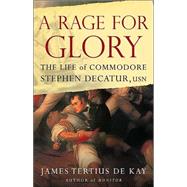
Two
Philadelphia
Three
Mr. Midshipman Decatur
Four
Honor
Five
Glory
Six
Legend
Seven
Susan
Eight
The Leopard-Chesapeake Affair
Nine
Court-Martial
Ten
Atlantic Tensions
Eleven
29ø N x 29ø 30' W 113
Twelve
"Of Equal Force"
Thirteen
Gales Ferry
Fourteen
USS President and HMS Endymion
Fifteen
"Dove Mi Piace!"
Sixteen
The Navy Board
Seventeen
Barron Returns
Eighteen
The Challenge
Nineteen
Bladensburg
Twenty
Afterwards
Acknowledgments
Bibliography
Notes and Comments
Index
The New copy of this book will include any supplemental materials advertised. Please check the title of the book to determine if it should include any access cards, study guides, lab manuals, CDs, etc.
The Used, Rental and eBook copies of this book are not guaranteed to include any supplemental materials. Typically, only the book itself is included. This is true even if the title states it includes any access cards, study guides, lab manuals, CDs, etc.